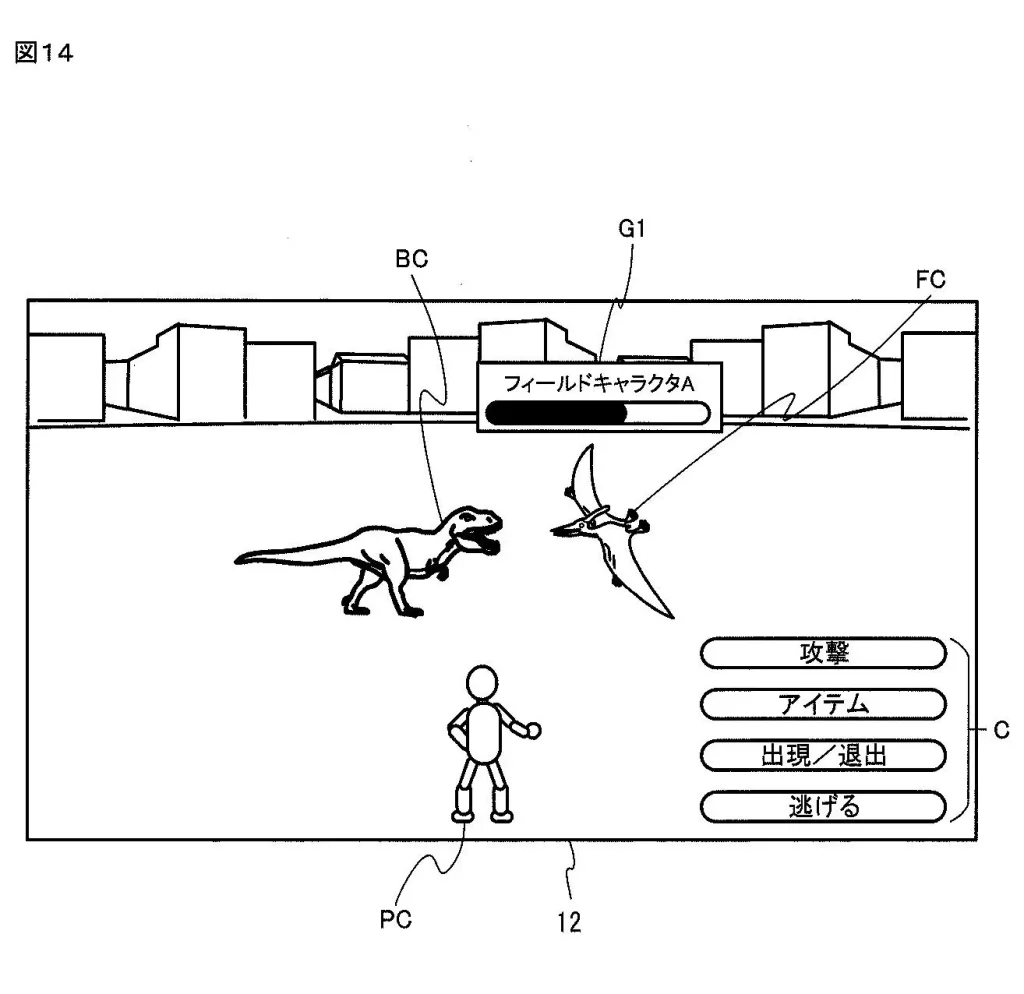The Nintendo lawsuit has emerged as a significant legal battle, drawing attention in the gaming community and beyond. Recently, Nintendo initiated legal action against Genki, a third-party accessories company, claiming trademark infringement and false advertising related to the upcoming Nintendo Switch 2. According to court documents, Genki allegedly capitalized on the hype surrounding the unreleased console by showcasing fake compatibility with its accessories months before the official launch. This legal dispute highlights the growing concerns over gaming accessories and intellectual property, especially as companies continue to innovate. As Nintendo seeks to protect its trademarks, the outcome of this lawsuit could have far-reaching implications for gaming accessory manufacturers, making it a case to watch closely.
In recent developments within the gaming sphere, Nintendo has taken a firm stance against alleged infringement by Genki, marking a pivotal moment in the realm of gaming accessories. This legal confrontation is rooted in claims of misrepresentation regarding the compatibility of Genki’s products with the forthcoming Switch 2 hardware, which has yet to be revealed. The dispute underscores the importance of intellectual property rights in the gaming industry, as major companies like Nintendo aim to safeguard their innovations from unauthorized exploitation. With terms such as unfair competition and trademark violation entering the discourse, this situation could reshape how accessory manufacturers operate in relation to major gaming franchises. The ramifications of this lawsuit extend beyond mere legal ramblings; they may redefine the landscape for gaming accessories and their marketing strategies.
Understanding the Nintendo Lawsuit Against Genki
The recent legal action taken by Nintendo against Genki centers around allegations of trademark infringement and unfair competition. Nintendo claims that Genki’s advertisement of gaming accessories purportedly compatible with the upcoming Nintendo Switch 2 console is misleading, especially considering that the console had not yet been publicly revealed. By initiating this lawsuit, Nintendo is taking a stand against what it perceives as an unscrupulous attempt by Genki to profit off the popularity and anticipation surrounding the Switch 2. This case not only highlights the aggressive protection of intellectual property rights by game developers but also raises questions about ethical marketing practices within the gaming accessories industry.
Nintendo’s lawsuit outlines multiple grievances, including claims of false advertisement and unauthorized access to proprietary information regarding the Switch 2. The gaming giant is seeking significant legal recourse, including financial damages, an injunction on Genki’s marketing practices, and the destruction of any misleading materials. As the lawsuit proceeds, the outcome may set a precedent for how gaming companies handle similar disputes with third-party manufacturers, particularly in a landscape where the lines of intellectual property can often blur. This legal confrontation marks a crucial moment in the ongoing saga of intellectual property and competition in the fast-paced technology market.
Implications of the Nintendo Trademark Infringement Claims
The implications of Nintendo’s trademark infringement claims against Genki are far-reaching, particularly for independent accessory manufacturers. If the court rules in favor of Nintendo, it could reinforce the idea that game developers maintain significant control over how their trademarks and consoles are represented in the market. This could lead to stricter regulations for companies wishing to market accessories that claim compatibility with popular gaming systems like the Nintendo Switch 2. Consequently, smaller companies may need to invest more in legal protections or find innovative ways to market their products without infringing on established trademarks.
Additionally, a successful lawsuit could deter other accessory manufacturers from making bold claims about their products relating to unreleased consoles or technologies. The negative publicity from a court ruling against Genki could also lead to a chilling effect within the industry, where companies might think twice before launching products that push the boundaries of what’s legally permissible. Given the immense popularity of Nintendo consoles, the stakes in this lawsuit are not only financial but also conceptual, shaping the future interaction between gaming companies and accessory developers.
The Role of Gaming Accessories in Emerging Markets
As gaming continues to grow in popularity around the world, the role of gaming accessories has become increasingly significant in emerging markets. Accessories for consoles like the Nintendo Switch 2 can enhance user experience, leading to higher consumer engagement and greater satisfaction. With this growing demand, various third-party manufacturers see an opportunity to create innovative products tailored to gamers’ needs. However, this trend also invites rigorous scrutiny from major corporations like Nintendo, who feel compelled to protect their brand integrity and customer trust in the marketplace.
In light of the Genki case, it raises critical discussions concerning the balance between innovation and trademark rights. While companies like Genki strive to offer creative solutions to gamers, they must navigate a complex landscape where legal actions can disrupt operational plans. Emerging markets might see an influx of new gaming accessories, but the manner in which they are marketed will heavily depend on developments in litigation like the one with Nintendo. Ultimately, this underscores the importance of maintaining a solid legal framework that supports both innovation and protects corporate trademarks.
The Impact of Legal Action on Small Gaming Companies
Legal actions, such as the lawsuit filed by Nintendo against Genki, can have profound impacts on small gaming companies. These companies often operate with limited resources and rely on creative marketing strategies to differentiate their products in a competitive market. When faced with a high-profile lawsuit, they may struggle to allocate enough resources for legal representation or product promotion, potentially stifling their growth and innovation. The pressure of litigation can divert focus from product development to legal defense, ultimately affecting their market position.
Furthermore, the outcome of such legal proceedings could dictate operational tactics for many small companies in the gaming accessories sector. If the court sides with Nintendo, it could lead to increased caution among start-ups that design complementary products for existing console platforms. This may result in fewer bold marketing claims and a trend towards more subdued promotional strategies, where companies opt to avoid the pitfalls of trademark infringement altogether. Thus, the consequences of Nintendo’s legal strategy extend beyond this single case, impacting the entire ecosystem of gaming accessory manufacturers.
Genki’s Response and Future Plans Amid Legal Challenges
In response to the lawsuit, Genki has publicly stated that they take the allegations seriously and are working with legal counsel to prepare an appropriate response. Despite the ongoing legal challenges, the company emphasizes its commitment to innovation and quality in the gaming accessory space. By positioning themselves as a community-focused independent company, Genki seeks to reassure consumers and stakeholders that they will continue to deliver unique products. This communication strategy is crucial for maintaining customer loyalty during turbulent times.
Looking ahead, Genki’s future plans may also depend on how the lawsuit unfolds. While they are currently dedicated to fulfilling orders and showcasing new products at PAX East, the ongoing legal action could lead them to adjust their marketing strategies or product design. Should they prevail in court, it would bolster their market credibility and potentially open the door for a broader range of products tailored to the Nintendo Switch 2. However, if the ruling favors Nintendo, Genki may need to pivot and adapt to compliance measures that prioritize adherence to trademark standards, thereby reshaping their business trajectory.
The Future of the Nintendo Switch 2 and Its Accessories
The anticipation surrounding the Nintendo Switch 2 is palpable, with gamers eager to explore what innovations the new console will bring. As part of this evolution, the relationship between the console and its accessories plays a significant role in enhancing user experience. Companies like Genki, despite their current legal challenges, aim to create innovative accessories that complement the evolving technology. As new gaming experiences unfold, the importance of accessories tailored to sophisticated consoles becomes ever more critical.
Nintendo’s ongoing legal action reinforces the importance of genuine compatibility and consumer trust in the accessories marketed for their platforms. While the demand for Switch 2 accessories will likely rise, it is essential that third-party manufacturers adhere to legal guidelines to mitigate the risk of litigation. This evolving landscape paves the way for exciting developments in the gaming sector, yet simultaneously places pressure on accessory developers to remain ethically and legally compliant in marketing their offerings.
Navigating Legal Terrain in the Gaming Development Sector
As Nintendo’s lawsuit against Genki progresses, it draws attention to the legal complexities that gaming companies must navigate in order to protect their intellectual property. The balance between fostering innovation and safeguarding brand integrity is a delicate one, and this situation highlights the challenges inherent in the gaming accessories market. Developers and manufacturers of gaming products must not only focus on creating high-quality items but also on ensuring that they do not infringe upon existing trademarks, which can lead to costly legal battles.
Additionally, the case may encourage collaborations between legal experts and gaming manufacturers to establish clearer guidelines for accessory compatibility with consoles. Navigating this legal terrain is essential for both protecting established brands like Nintendo and allowing smaller companies like Genki to thrive. Thus, the resolution of this lawsuit could serve as a pivotal moment for defining the future of legal practices in the gaming industry while simultaneously affecting how accessories are marketed and sold.
Community Reactions and Industry Impact of the Lawsuit
The community reaction to the Nintendo lawsuit against Genki has been mixed, with some gamers expressing support for Nintendo’s protection of its trademarks while others empathize with Genki’s pursuit of innovation in the accessory market. Online forums and social media platforms are abuzz with discussions about the implications this lawsuit has on both companies and the gaming community as a whole. Many consumers have voiced concerns about potential ramifications for product availability and pricing, as legal battles can often lead to increased costs passed onto consumers.
The industry impact of this lawsuit extends beyond the parties directly involved. It serves as a learning opportunity for other accessory manufacturers about the potential risks associated with marketing practices and claims of compatibility with unreleased products. The outcome could either instigate a wave of similar lawsuits or encourage an atmosphere of caution in the gaming accessory market, further influencing how third-party developers approach brand collaborations and product representations.
Frequently Asked Questions
What are the main allegations in the Nintendo lawsuit against Genki regarding trademark infringement?
In the Nintendo lawsuit against Genki, the main allegations include trademark infringement, unfair competition, and false advertising. Nintendo claims that Genki has been unlawfully advertising accessories for the Nintendo Switch 2, even before the console’s official release, suggesting unauthorized access to the unreleased device, which violates Nintendo’s trademark rights.
How has Nintendo responded to Genki’s claims about compatibility with the upcoming Switch 2?
Nintendo has responded to Genki’s claims by asserting that any claims regarding compatibility with the Switch 2 are misleading. According to Nintendo, Genki cannot legitimately claim compatibility without having legitimate access to the console, which has been publicly emphasized in their legal action against the company.
What actions is Nintendo seeking through its legal action against Genki?
Through its legal action against Genki, Nintendo is seeking a court order to prevent Genki from using its copyrighted marks, including the Nintendo Switch name and logo. Additionally, Nintendo demands the cessation of false advertising regarding accessory compatibility and seeks damages for the alleged infringement and unfair competition, which they wish to have trebled.
What prompted the Nintendo trademark infringement lawsuit against Genki over gaming accessories?
The Nintendo trademark infringement lawsuit against Genki was prompted by Genki’s advertizing of mockups of Nintendo Switch 2 accessories while claiming unauthorized access to the unreleased console. This led Nintendo to believe that Genki was attempting to capitalize on the public interest surrounding their product launch, which they view as a violation of their trademark rights.
What is Genki’s stance on the Nintendo legal action concerning their gaming accessories?
In response to the Nintendo legal action, Genki has stated that they take the lawsuit seriously and are consulting with legal counsel. They emphasize their commitment to building innovative gaming accessories and stand by the quality of their products, asserting that their independence as a company is crucial to their ongoing efforts in the gaming community.
What potential damages is Nintendo seeking in the lawsuit against Genki for false advertising?
Nintendo is seeking various damages in its lawsuit against Genki, including financial compensation for infringement and false advertising. They are requesting that all damages be trebled as well as an audit of Genki’s profits to determine the exact amount owed to Nintendo due to the alleged legal violations.
Will Genki have to cease operations related to the Nintendo accessories based on the lawsuit?
If the court rules in favor of Nintendo in the ongoing lawsuit, Genki may be compelled to cease operations related to their Nintendo Switch 2 accessories, particularly those that infringe upon Nintendo’s trademarks. This could include stopping the sales of any accessories that falsely claim compatibility with the unreleased console.
| Aspect | Details | |
|---|---|---|
| Lawsuit Initiated By | Nintendo against Genki | |
| Allegations | Trademark infringement, false advertising, unfair competition | |
| Event Leading to Lawsuit | Genki showcased a ‘mockup’ Switch 2 console in January 2025 | |
| Claims by Genki | Advertised unauthorized access to the unreleased Nintendo Switch 2 and claimed compatibility with it. | |
| Nintendo’s Response | Claims Genki couldn’t verify compatibility without actual possession of the console. | |
| Legal Action Sought by Nintendo | Injunction against use of Nintendo copyrights, destruction of infringing materials, and damages recovery. | |
| Genki’s Statement | ‘Genki is an independent company and stands by its products.’ | |
Summary
The Nintendo lawsuit against Genki underscores the critical importance of trademark protection in the gaming industry. Nintendo firmly asserts that Genki has conducted an unfair campaign to mislead the public about its upcoming Switch 2 console by falsely claiming compatibility with its yet-to-be-released accessories. This legal confrontation not only highlights the need for companies to adhere to fair competition practices but also emphasizes Nintendo’s commitment to protecting its intellectual property against unauthorized use. As the case develops, it will be essential to monitor its implications for both Nintendo and Genki, as well as the broader gaming accessory market.



